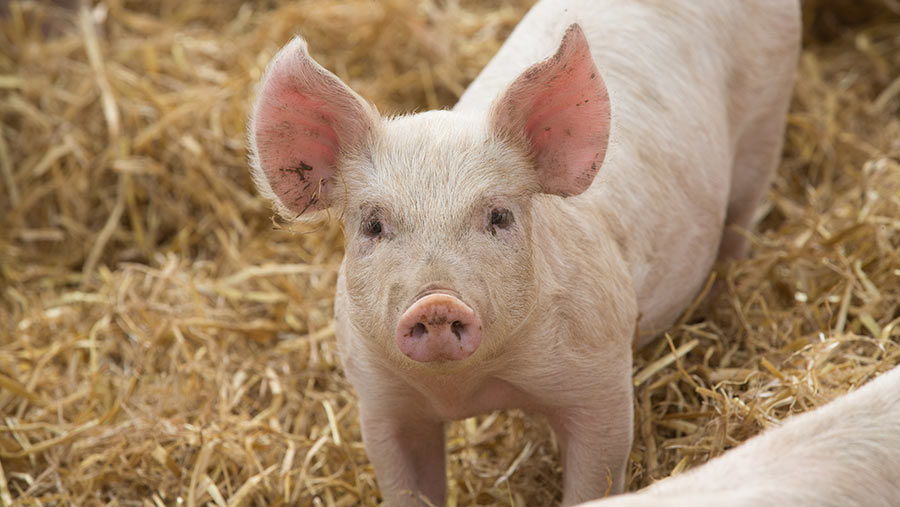Coronavirus: Pig producers could feed waste milk, says NPA
 © Tim Scrivener
© Tim Scrivener Pig producers with liquid feed systems could use surplus milk resulting from the impact of Covid-19 on the dairy market, the National Pig Association has suggested.
The government lockdown, to control the coronavirus pandemic, has caused demand for milk in the food service sector to collapse.
Media reports have shown farmers dumping milk as values fall. However, the NPA has suggested a small proportion of raw milk could be used by pig farms with liquid feed systems.
See also: How food and drink by-products can cut costs for pig producers
The organisation’s senior policy adviser Rebecca Veale said the exact number of producers was unknown, but the figure was likely to be relatively small.
For some it represents an opportunity to work with dairy producers and reduce the amount of milk being wasted, Ms Veale said.
But she urged any producers interested to do their research and adhere to the strict guidelines governing the use of raw milk in feed.
Unprocessed milk can only be brought in from a registered processor or producer, she said.
In England and Wales pig farms must also register on the national milk register before feeding unprocessed milk or milk products.
In addition, a 21-day movement standstill will be imposed on holdings receiving pigs that have been fed on raw milk or raw milk products.
The standstill doesn’t apply to slaughterhouses or farms that are also feeding raw milk products. In addition, Red Tractor pig producers can only bring in milk produced by dairy farms on the assurance scheme and the warranty declaration must be completed and held in records.
A further stipulation of the declaration is that the milk is free from contaminants, so the dairy herd’s health status must be checked prior to accepting any milk or milk products, she added.
How to register
Send an email to CSCOneHealthABP@apha.gsi.gov.uk or write to:
APHA Customer Service Centre – One Health,
Animal by-products,
Worcestershire County Hall,
Spetchley Road,
Worcester, WR5 2NP
The email or letter should include:
- The farm name or trading name
- Full address
- Telephone number and email address
- A designated contact person from the organisation
- A list of the milk and milk products to be used as farm animal feed
- Details of any milk processing establishments or food retail or manufacturing businesses that have agreed to supply the feed.
Further information
- Government guidance notes
- Red Tractor guidance notes 2019
